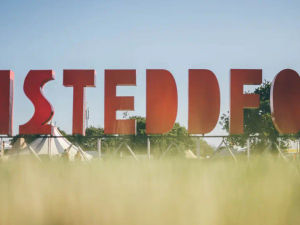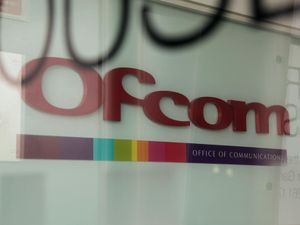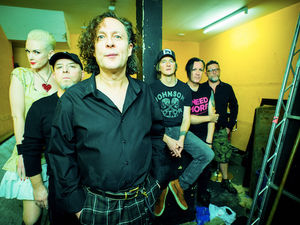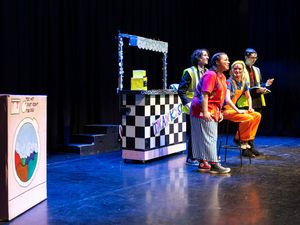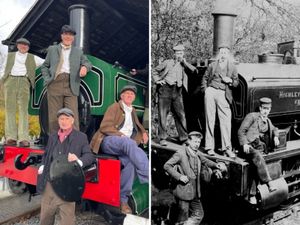Barbie reviews: Our reporters left the cinema feeling a bit deflated - for different reasons
Is life really better in pink? Two of our reporters went to see the new Barbie film to find out.
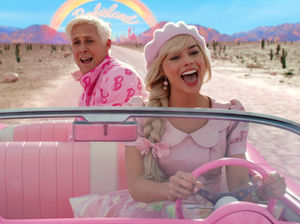
The new Barbie movie is perhaps the most-anticipated movie of the year, and is already helping to set new records at the box office.
The brainchild of American actress and director, Greta Gerwig, it boasts a star-studded cast of Margot Robbie, Ryan Gosling, Will Ferrell, America Ferrera and Ariana Greenblatt. Also on the bill is a shopping list of accredited support stars, actresses, actors and influential figures such as Dua Lipa and John Cena turn up to be a part of the prospecting film of the year.
On opening weekend in America it took an estimated $155 m (£120 m).
Barbie is directed by the amazing Oscar-nominated director of Lady Bird (2017) and Little Women (2019) Greta Gerwig.
Gerwig signed on to write for the Barbie movie in 2019 along with the Marriage Story write-director Noah Baumbach. However, in July 2022, Variety confirmed that Gerwig would also be directing the movie.
She is best known for her eccentric and thought-provoking comedy dramas and Baumbach is more know for dry flicks – not exactly the first choice for a Barbie movie.
Barbie is a multi-layered, colourful and often chaotic movie that follows the titular character, Barbie and her boyfriend (but in name only) Ken (who are of course both toys), as they follow a journey of self-discovery following a seemingly world-ending existential crises.
On the surface, the film is colourful, fun and energetic, filled with historic references, powerhouse performances and of course everything Barbie. What's not to love?
Well, look past the candy-coated surface of Barbie and you get the real picture. Barbie is a thought-providing movie exploring the deepest depths of patriarchy, toxic masculinity, and above all else, feminism.
The film is encompassed in strong messages aimed at women of any age, messages about female pride, empowerment and the Barbie brand slogan of "You can be everything".
So what did our reporters make of it?
Isabelle Parkin
Having grown up playing make-believe with my dolls and hosting imaginary parties in my Barbie DreamHouse, I was looking forward to feeling a sense of nostalgia as I sat down in a fully-booked cinema surrounded by people wearing Barbie's favourite colour (pink, of course).
I have enjoyed many films by writer and director Greta Gerwig in the past – Lady Bird and Little Women being two of my favourites – and was looking forward to seeing her influence in this film.
With such a star-studded cast, my hopes were high as Margot Robbie and Ryan Gosling took centre stage as "stereotypical" Barbie and Ken joined by a host of familiar faces including Will Ferrell, John Cena, Emma Mackey, Michael Cera and Dua Lipa, to name a few.
Barbie and Ken are a product of Barbie Land; a sickly pink and seemingly perfect place filled with synchronised dancing, co-ordinated outfits and parties attended by every doll in town.
It is a world where women can be anything from doctors, to lawyers and politicians, a place where women are construction workers, waste collectors and Noble Peace Prize winners whilst Ken simply has the role of "beach".
But cracks start to show in this perfect realm when Barbie begins to "malfunction", developing bad breath, messy hair, flat feet and cellulite.
No longer able to maintain her picture-perfect image, Margot Robbie's character sets off with sidekick Ken on an adventure to the real world – otherwise known as Los Angeles.
When they wash up on Venice Beach wearing matching leotards and brightly coloured roller skates, the realisation quickly sets in for the protagonists that Barbie Land is quite the antithesis of the real world.
With the fictional realm presented as a place of exaggerated optimism and endless opportunities for women, the real world appears rather disappointing in comparison and left me feeling quite flat.
And so with a theme of patriarchy at its core, Ryan Gosling's comedic portrayal as Ken provided a much-needed feeling of respite and is something I found myself craving more of by the end.
Whilst I can only praise the film for its strong feminist ideology, I left the cinema feeling rather deflated at the state of the real world – maybe life in plastic is fantastic, after all.
Daniel Walton
I thought... Meh. It was an amazing film. The film has struck a chord with almost every age, gender and ethnicity – but it was missing something. The message of Barbie, whilst extremely important to today's society, seemed to be almost confused in the glitz, glamour and "perfection" of the Barbie world.
In the crucial early development period of my youth, I was surrounded by strong female role models, more girl cousins than I could count, and more "girl toys" (to quote a sexist parent I once met) than I could be handed down.
But I left the theatre feeling almost like I was missing something.
In retrospect, film's message of feminism was amazing, but the movie is very binary and heteronormative. For a film that is also about representation, there wasn't an openly gay, LGBT+ friendly or even a Transgender Barbie in the whole film (even though Transgender Barbie was released as part of Mattel's Tribute Collection).
The one character we see who is openly alternative is given the moniker of "Weird Barbie", is openly mocked for being alternative, and then given a half-handed apology near the end of the film. And the closest we get to gay characters, Earring Magic Ken and Sugar Daddy Ken, Mattel openly denied as being intentionally gay-coded.
For a film promoting the ideals of Mattel's "you can be anything" slogan it seems more like "you can be anything as long as you're straight and 'regular'."
But, in all, the film was amazing. It contains a strong message about empowerment and feminism and gives strong opinions surrounding the toxic masculinity shown by the real men and later film Kens, and the patriarchy.
I absolutely would go to see it again. However, if they do make a Barbie 2, I want to see all my LGBT+ and Alternative Barbies and Kens fully represented, because everyone truly can be everything.

